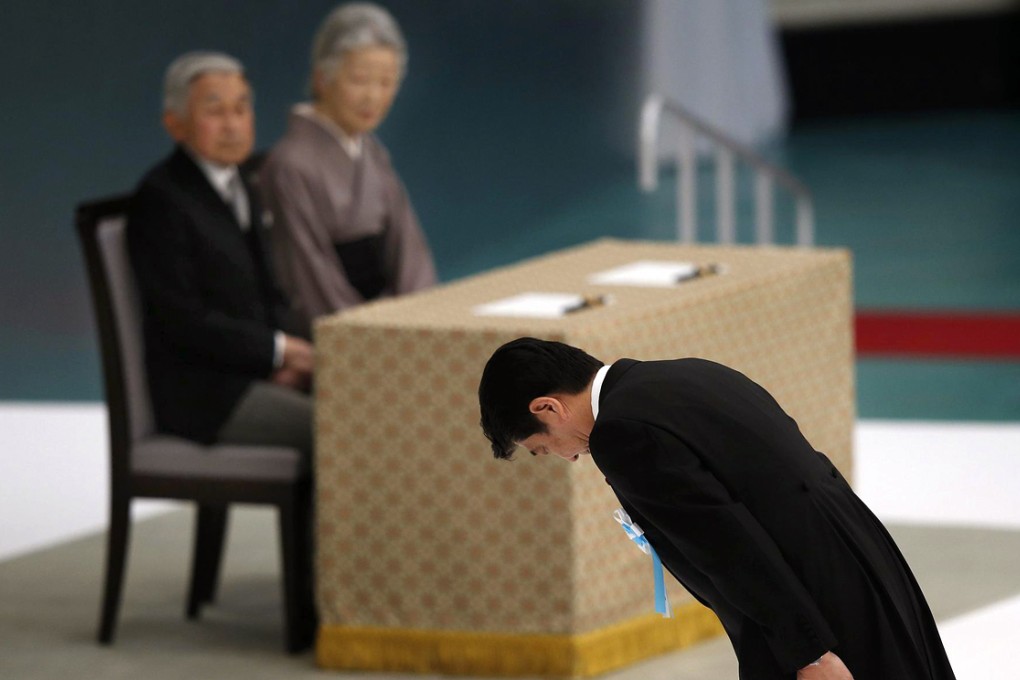Shinzo Abe’s Yasukuni Shrine offering angers China and South Korea
Japanese PM tries to 'compromise' by staying away from controversial site, but Beijing and Seoul call on the country to face up to its past

China and South Korea reacted sharply after Japanese Prime Minister Shinzo Abe made an "offering" to a controversial war shrine and lawmakers from his party, including two cabinet ministers, visited the shrine on the 69th anniversary of Japan's defeat in the second world war.
The Yasukuni shrine "is a place that honours Class A war criminals of the second world war and whitewashes Japan's war of aggression", foreign ministry spokeswoman Hua Chunying said in Beijing.
"The core of all the issues surrounding the Yasukuni Shrine is whether the Japanese government can own up to and adopt a correct attitude towards its history of aggression. Only when Japan earnestly faces up to and deeply reflects on its history of aggression and completely makes a clean break from militarism, can it be possible for Sino-Japanese relations to achieve a healthy and stable development," Hua said.
In South Korea, President Park Geun-hye echoed Beijing's sentiment, saying the actions of some Japanese politicians were splitting the two nations.
"Our government has urged Japanese leaders to correctly recognise history," she said.
Abe visited the shrine in December, chilling ties with China and South Korea. By sending an offering, Abe appeared to be trying not to worsen tensions while upholding a conservative ideology that takes a less apologetic tone over Japan's wartime past.
